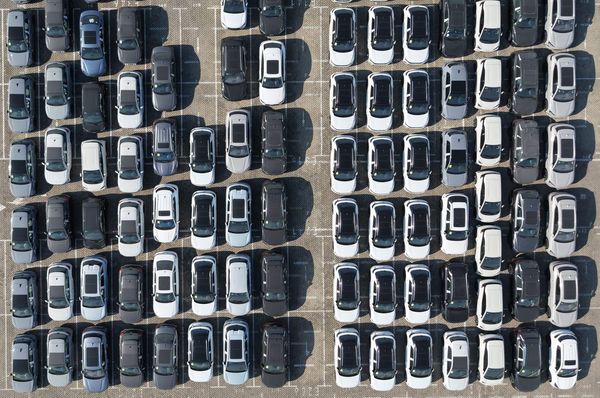
Uefa is in discussions with its lawyers over ending a longstanding relationship with Gazprom, after confirming that this season’s men’s Champions League final has been moved from St Petersburg to Paris.
On a day when European football began to take firm action over the invasion of Ukraine, Manchester United ended their sponsorship deal with Aeroflot and matches on Russian soil were effectively boycotted.
Uefa confirmed at an extraordinary meeting of its executive committee on Friday morning what had been predicted since Tuesday: the men’s Champions League final will be taken away from the Gazprom Arena. Instead, and with the assistance of the French president, Emmanuel Macron, the game will be played in the Stade de France on 28 May.
“Uefa wishes to express its thanks and appreciation to French Republic president Emmanuel Macron for his personal support and commitment to have European club football’s most prestigious game moved to France at a time of unparalleled crisis,” Uefa said in a statement.
“Together with the French government, Uefa will fully support multistakeholder efforts to ensure the provision of rescue for football players and their families in Ukraine who face dire human suffering, destruction and displacement.”
The wording of the announcement continued the stronger language adopted by the European governing body on Thursday after Russian tanks crossed on to Ukrainian soil. Reports suggested Macron had also met Uefa’s president, Aleksander Ceferin, that day.
It was not the only decision taken. Russian clubs and the country’s national team must play any Uefa-organised match on foreign soil. In club competition this rule will apply only to Spartak Moscow, who will have to find a neutral ground for the “home” leg of their Europa League last-16 tie with RB Leipzig. At international level, with the Nations League scheduled to resume in the spring, Russia are to host Iceland and Albania in June and must also search for new venues. Football organisations from a country that has declared war on a European nation must now look to their neighbours to provide them with assistance. It is not inconceivable that none will be forthcoming, and makes it more likely that, ultimately, a ban on Russian clubs and the national team becomes a reality.
There was also a third and perhaps most consequential development, with the news that Uefa is consulting with its lawyers over the possibility of ending its sponsorship deal with Gazprom. The Russian gas giant owns Zenit St Petersburg, is the shirt sponsor of Schalke – although the German club have removed the name this week – and has been title sponsor of the Champions League for a decade.

SportBusiness Sponsorship had estimated that a 2018-21 sponsorship deal was worth about €40m a year to Uefa, before the recent addition of the European Championship to Gazprom’s portfolio. To end the deal would be a considerable financial hit to the governing body. It would also be a significant sign that Russia’s application of soft power sports sponsorship was not irreversible. A dry Uefa statement would confirm only that there would be “other meetings of the ExCo soon where additional matters will be addressed”.
The Russian representative on Uefa’s ExCo, Alexander Dyukov, is the head of the Russian Football Union (RFU) and a Gazprom executive, the chairman of the subsidiary company Gazprom Neft. He was at Friday’s meeting and his response to the measures was combative.
“We believe that the decision to move the venue of the Champions League final was dictated by political reasons,” he said. “The RFU has always adhered to the principle of ‘sport is out of politics’, and thus cannot support this decision.
“The RFU also does not support the decision to transfer any matches involving Russian teams to neutral territory as it violates the sports principle and infringes on the interests of players, coaches and fans.”
Uefa’s actions were welcomed by the UK government, with the sports minister, Nigel Huddleston, indirectly responding to Dyukov, when he acknowledged the need for action. “I appreciate that a lot of people are uncomfortable mixing sport and politics,” Huddleston said. “But the situation in Ukraine is way beyond politics.”
- Download the Guardian app from the iOS App Store on iPhones or the Google Play store on Android phones by searching for 'The Guardian'.
- If you already have the Guardian app, make sure you’re on the most recent version.
- In the Guardian app, tap the yellow button at the bottom right, then go to Settings (the gear icon), then Notifications.
- Turn on sport notifications.
On Thursday, the Conservative party had announced a ban on the operations of the Russian airline Aeroflot in the UK. On Friday Manchester United said that their valuable sponsorship deal with the airline had come to an end.
“In light of events in Ukraine, we have withdrawn Aeroflot’s sponsorship rights,” a United spokesperson said. “We share the concerns of our fans around the world and extend our sympathies to those affected.” The decision ends a nine-year association between the club and Russia’s largest airline. The contract was was due to expire next year, having been renewed in 2017.







